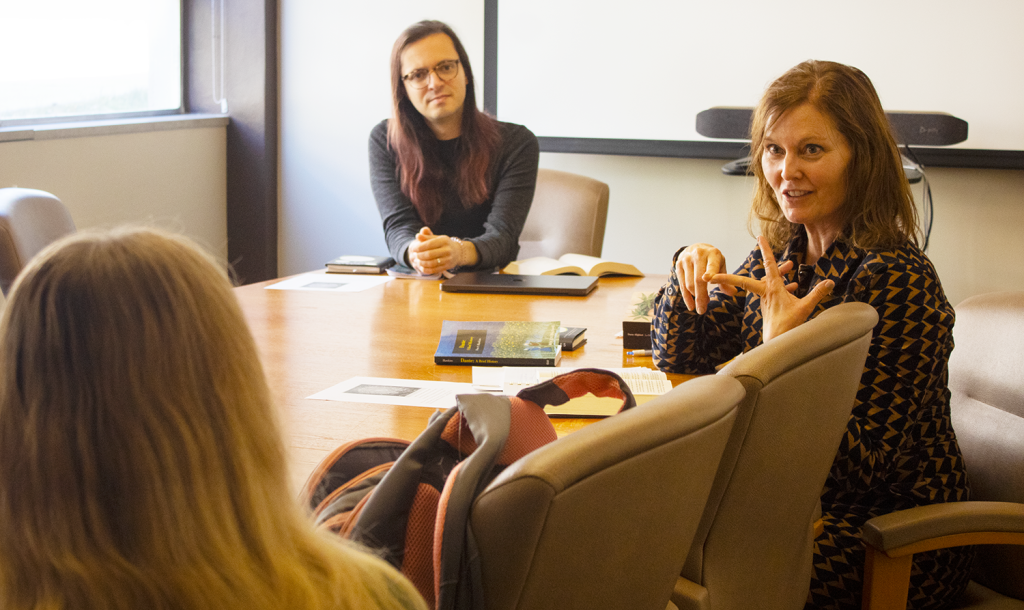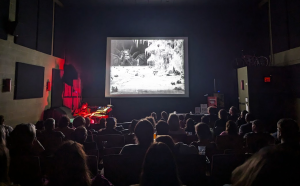Published on Oct. 29, 2024

This semester, the Honors College is offering a new course studying the intersection of Italian poetry and quantum physics.
“I think it’s an amazing melding of what are thought of as very disparate fields, because you don’t usually think of the sciences and humanities (together),” said Carla Cornette, an associate teaching professor of Italian. “They’re usually considered diametrically opposed, and that they work on completely different problems.”
Mike Schneider, who teaches alongside Cornette, is an assistant professor in the Department of Philosophy. His Ph.D. is in the philosophy of physics, which combines science with a concern for human values, as is typical of the humanities. Cornette has a Ph.D. in Italian literature.
The course, “A Journey Through Black Holes and Dante’s Hell,” focuses on the intersection of Italian poet Dante Alighieri and new discoveries regarding black holes.

While the two subjects might initially appear to have nothing in common, Schneider and Cornette, along with the five students in their Honors Tutorial, are spending a semester connecting them.
The inspiration for the course was a new text by Carlo Rovelli, titled White Holes. The text catalogs Rovelli’s investigation of quantum mechanics as it pertains to black holes, and employs an ongoing allusion to Dante’s narrative poem, Commedia. Commedia, which translates to comedy in English, describes a soul’s journey through hell, purgatory and heaven.
“I guess because my research area is itself transdisciplinary … I’m very familiar with having to get a group up to speed on a very different way of looking at the world,” Schneider said.
As the students in this course read a portion of each text every week, Schneider illuminates some of the complexities of physics, while Cornette illuminates the context of the poem, set in 14th century Italy.
Every week, each student chooses a “one-word lecture” to describe the past week’s readings.
“It could be thematic, it could be a fundamental question that they have, and then explain,” Cornette said. “So, we all share our words, which usually gives very different perspectives, which is really kind of interesting.”
Since Honors Tutorial courses feature fewer students, the current members of the tutorial had to apply where they indicated their interest in the course. Each of the students this semester come from distinct scientific fields of study.
Cornette and Schneider said they would repeat the class in future semesters if students continued to express interest.